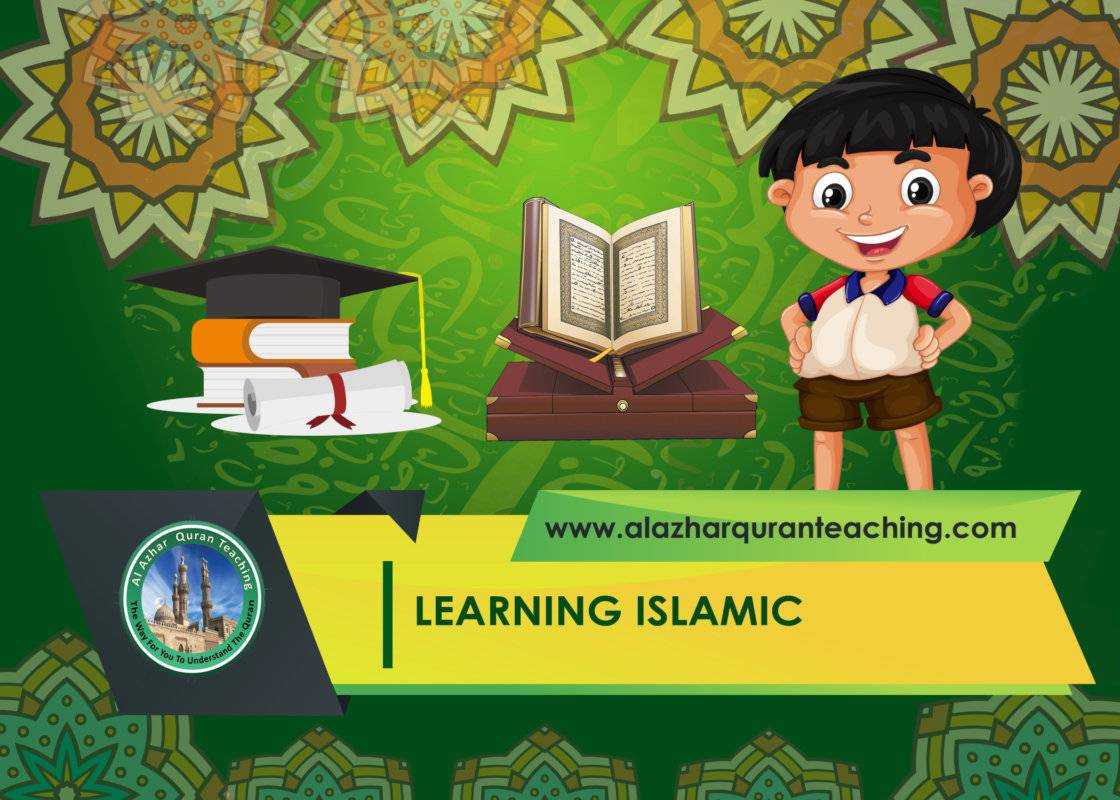Learning Islamic
Learning Islamic, a religion, which originates from an Arabic root word signifying “peace” and “submission.” Learning Islamic knowledge teaches that one can discover peace in one’s life by submitting to Almighty God (Allah) in heart, soul, and deed. It is just by Learning Islamic that we acquire prophetic direction, and become among the “ahl ad- dhikr” (the individuals who recall Allah). It is additionally true that learning something by itself is never enough.
There are thus significant lessons for us when we, too, consider Learning Islamic, and in reality, it is commonly valid for learning about things that benefit us (al-‘ilm al-nafi’) – science, history, farming, engineering, geology and so on. We should make pledges to contemplate and get familiar with the Qur’an, these lessons, a couple of which we quickly plot, ought to stay at the front line of our mind inshaAllah.
Learning should assist us with teaching and reason appropriately.
The extraordinary researchers of Islam were all profound scholars, who approached and assessed issues deliberately, typically based on sound contentions, with a critical mind. They travelled widely to gain from various instructors and centers on learning. Never were they hesitant to pose testing inquiries or to draw in the intense scholarly difficulties of their time. Their craving was to educate appropriately and to support adherents, not to lead them to blunder, or to look for fame or to boast.
Learning Islamic should motivate us to worship Allah, to act appropriately, and to carry advantage to other people.
For Muslims, learning Islamic isn’t only about devouring data and knowing statistical data points, as an end in itself. Learning Islamic knowledge, also, must fill two more prominent needs.
- It must lead to a desire to love Allah, to look for taqwa (awareness of Allah), to indicate appreciation, and to reinforce our confidence (Imaan).
- It must set us up to act recognizing what is good from bad, halal and haram, and truth from falsehood, so that in addition to the fact that we strive to turn into a source of ease and advantage to other people, yet additionally find a way to satisfy the duties as stewards of the earth (khulafa al-ard) that have been laid upon us by Allah – to be simple, reliable, pardoning, merciful, etc.
Islamic education is exceptionally unique concerning different sorts of educational theories and practice to a great extent due to the widely inclusive influence of the Quran. The Quran fills in as a complete diagram for both the individual and society and as the essential source of knowledge. The approach of the Quran in the seventh century was very progressive for the prevalently uneducated Arabian culture.
The Arab society had enjoyed a rich oral convention, yet the Quran was viewed as the word of God and should have been naturally communicated with by methods of reading and writing its words. Henceforth, reading, and composing to get to the full blessings of the Quran was a goal for most Muslims. In this manner, Learning Islamic Education unequivocally got its starting points from a beneficial relationship with religious guidance.
Practical Ways Of Learning Islamic Knowledge
Go to Classes at a Masjid/Mosque
Masājid generally offer free classes on Islam, so make sure to exploit it at your neighbourhood masjid! These classes furnish you with the critical convictions of Islam (just as cutting edge materials) and give an incredible chance to you to pose inquiries/clear up any confusions on the spot if the educator knows the appropriate response.
Take Arabic Classes
It’s fundamental as a Muslim to learn Arabic. Why? Since the actual Qur’an is in all Arabic as expressed in Surah Al-Zumar, and the books of hadith were written in Arabic too. The Qur’an & Sunnah (ahadith/life of the Prophet Sallallahu Alayhi wa Sallam) is a definitive guide for humanity, so, basically, we learn Arabic to understand and utilize these gifts appropriately. Luckily, Arabic classes are free at masājid.
Go to Halaqahs
Halaqahs plays a unique role in Learning Islamic. They’re mini-classes/lectures that are loaded up with heaps of useful data, methods for framing and setting a fellowship and sisterhood with those in your community, and a source of immense barakah.
Halaqahs are commonly held once every month, once every week, or all the more frequently depending upon who hosts it, and it’s usually allowed to visit.
Go to Seminars
Going to the seminars given by specialists are additionally a significant piece of learning Islamic Knowledge. As opposed to halaqah’s, seminars are much longer—it can keep going for a few hours or even a few days. Breaks are given, however, for salah and eating. Likewise, you are destined to pay to go to a class.
Read the Qur’an
The Quran is in Arabic, so those Arabic lessons will prove to be useful in this way. The Quran is the right word of Allah Subhanahu wa Ta’ala, so it’s full of gems and wisdom that are basic to learn and use as direction for our journey in this life and our destination in the next.
You don’t need to hold back to learn Arabic before building a relationship with the Qur’an, however. You can begin now, today, by reading the translation of it.
Take Online or In-person Courses
There are many free and paid courses for Learning Islamic you can take online or face-to-face. The classes are classified by various levels (for example, stage one, stage two, stage three), and a few courses depend on a particular madhab (for example Hanafi, Shafi’i, Maliki). They have an excellent range to look over, and you’re permitted to register for up to three courses at once.
Conclusion
To conclude, when we look for the knowledge, we should likewise focus and verify whether we are profiting by it by ending up better devotees by learning Islamic. May Allah protect and guide us.
REGISTER NOW

